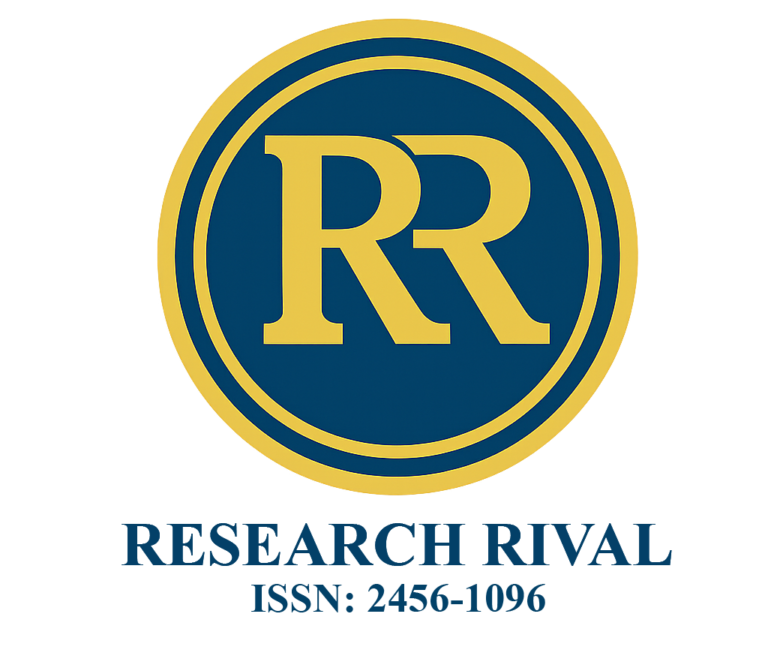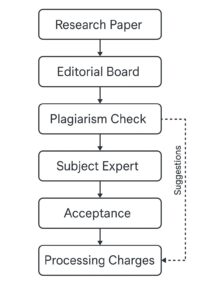The journal invites original, unpublished research papers that align with its scope and contribute significantly to academic discourse. Submissions must follow the prescribed format and referencing style, such as APA 7th edition, and should be made through the official journal portal or via the designated email. Manuscripts must be written clearly, logically structured, and supported with proper citations and references.
To maintain academic integrity, the journal enforces a strict plagiarism policy. All manuscripts are screened using trusted plagiarism detection tools like Turnitin or iThenticate. The acceptable similarity index is limited to 10%, excluding references and standard phrases. Authors are required to attach a plagiarism report during submission. Any manuscript exceeding the limit will either be rejected outright or returned for revision. In case of confirmed academic misconduct—including plagiarism, duplicate submission, or data fabrication—the editorial board reserves the right to reject the manuscript, retract published work, and inform the author’s affiliated institution if necessary.
Once a manuscript is submitted, it undergoes an initial editorial screening. This stage ensures that the paper matches the journal’s focus, adheres to formatting standards, and passes the plagiarism check. Manuscripts that fail at this stage may be returned to the authors for corrections or may be rejected without external review.
Papers that clear the initial stage enter the peer review process, which follows a double-blind system—the identities of both authors and reviewers remain confidential. Each manuscript is sent to at least two subject experts for evaluation. Reviewers assess the manuscript on several criteria, including originality, methodological rigor, quality of analysis, relevance to the field, clarity of writing, and academic contribution. The standard review time is 1 to 2 weeks, though complex cases may take slightly longer.
After receiving feedback from reviewers, the editorial team makes one of the following decisions: accept without changes, accept with minor revisions, request major revisions (revise and resubmit), or reject. In the case of revisions, authors are expected to address all reviewer comments thoroughly and resubmit the revised manuscript along with a point-by-point response. Revised manuscripts are often sent for a second round of review before the final decision.
The final decision regarding the acceptance or rejection of the manuscript lies with the Editorial Board, based on the peer reviewers’ reports and the quality of the author’s revisions. Authors are notified of the outcome through official email or the submission platform.
The journal follows ethical publishing practices in line with the guidelines of the Committee on Publication Ethics (COPE). All stakeholders—authors, reviewers, and editors—are expected to uphold high ethical standards. Any breach of ethics, including plagiarism or misrepresentation, will be dealt with seriously to preserve the journal’s academic integrity.

